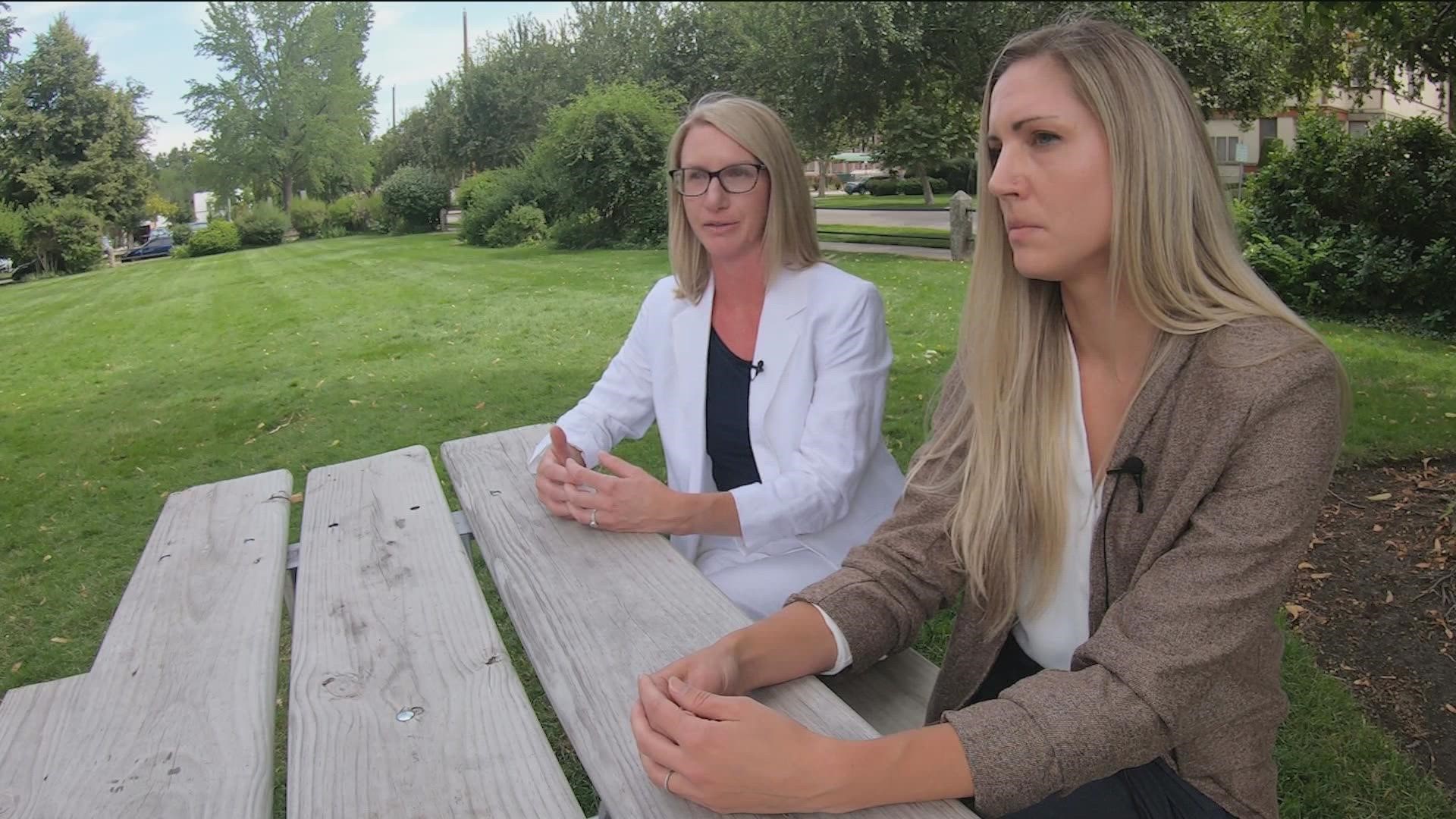BOISE, Idaho — As Idaho’s 6-week criminal ban on abortion is set to go into effect on Friday, medical professionals across the state remain concerned about the second, more restrictive abortion ban set to go into effect in one week, August 25th.
“We have significant concerns about what the total abortion ban means for normal patient care,” said Boise Doctor Lauren Miller.
Dr. Miller and her colleague Dr. Kylie Cooper focus their work on maternal fetal medicine in Boise. The pair is two of more than 300 doctors, nurses, and health care professionals that signed a letter, calling attention to glaring practical issues they see with Idaho’s near total ban on abortion.
“Basically, a public service announcement to say this is what we're really worried about, both for ourselves as physicians and how we're going to take care of our patients. And so, a group of us at the coalition got together and wrote the letter and decided to publish it in a local newspaper,” Miller said.
To be clear, the concerns expressed in the letter are not meant in a political nature. There are practical concerns. The letter reads in-part, “The Total Abortion Ban and Fetal Heartbeat Abortion Ban, as they are currently written, are dangerously vague and excessively restrictive.”
Dr. Miller details one example:
“So in the total abortion ban, they define a clinically diagnosable pregnancy. So, terminating any clinically diagnosable pregnancy is punishable by imprisonment for two years. A clinically diagnosable pregnancy to us as health care providers means many things any type of pregnancy, no matter how abnormal it might be, is still a clinically diagnosable pregnancy. So, that means I could be charged for completing a miscarriage that still had a heartbeat. But the woman's hemorrhaging in my emergency department and it's in her best interest to get that done went for her. It could be that she's got an ectopic pregnancy. There could be a fetus implanted in her fallopian tube and a cesarean section scar, you name it somewhere outside of the normal place for a pregnancy to be. It's still a clinically diagnosable pregnancy. That's not medical language that we use, and that is where the fear lies, is that doing our normal day to day job puts us at risk, that if there's a prosecutor out there who wants to get involved and say that we ended a clinically diagnosable pregnancy, having that law signed and in our Idaho Code puts us all at risk,” Miller said.
Idaho medical professionals continue to speak out on their concerns with nonmedical language being in the law, something that complicates crucial decisions doctors need to make quickly.
“As a medical provider, we have ethical obligations which include do no harm to act in the best interest of the patient, to support their autonomy and decision making. And these laws have caused a lot of conflict with those oaths and the morals that we hold as medical providers. And it certainly keeps me awake at night,” Cooper said.
Some language in the laws leave gray areas about when a Doctor can do an abortion, the pair of doctors said. And, the consequences of making a life or death decision on a moments notice is complicated by the threat of a prison sentence if someone outside of the emergency decision disagrees with an abortion decision weeks later.
“The total abortion ban at a simply to prevent her death. Death is never certain until you are dead. Right. There is a huge continuum where we know what's a possibility. Again, take ectopic pregnancy, for example. If we go back to data from the 1800s. 60% of women will die from their ectopic pregnancy. It is, you know, a 50% chance of dying enough to intervene. Is a 20% chance of dying enough to intervene,” Miller said.
To be clear to skeptics, the pair explains that they see serious pregnancy complications very frequently, not just once in a while.
“We see ectopic pregnancies in general OBGYN clinics every single day. This is day to day normal activities for an OBGYN to care for complications. One in four pregnancies ends in a miscarriage. Extremely common. You know, again, thinking back historically, the number one cause of death for women. Before we had modern medicine was complications from childbirth. We do not want to go back to that. We have modern medicine to prevent us from ever having to watch a woman die,” Miller said.
So where does the group go from here?
“It's our hope that we're able to inform the public and to explain the nuances of pregnancy to impact some future legislation to try to reduce the harm that will come from these bans,” Cooper said.
Join 'The 208' conversation:
- Text us at (208) 321-5614
- E-mail us at the208@ktvb.com
- Join our The 208 Facebook group: https://www.facebook.com/groups/the208KTVB/
- Follow us on Twitter: @the208KTVB or tweet #the208 and #SoIdaho
- Follow us on Instagram: @the208KTVB
- Bookmark our landing page: /the-208
- Still reading this list? We're on YouTube, too:

